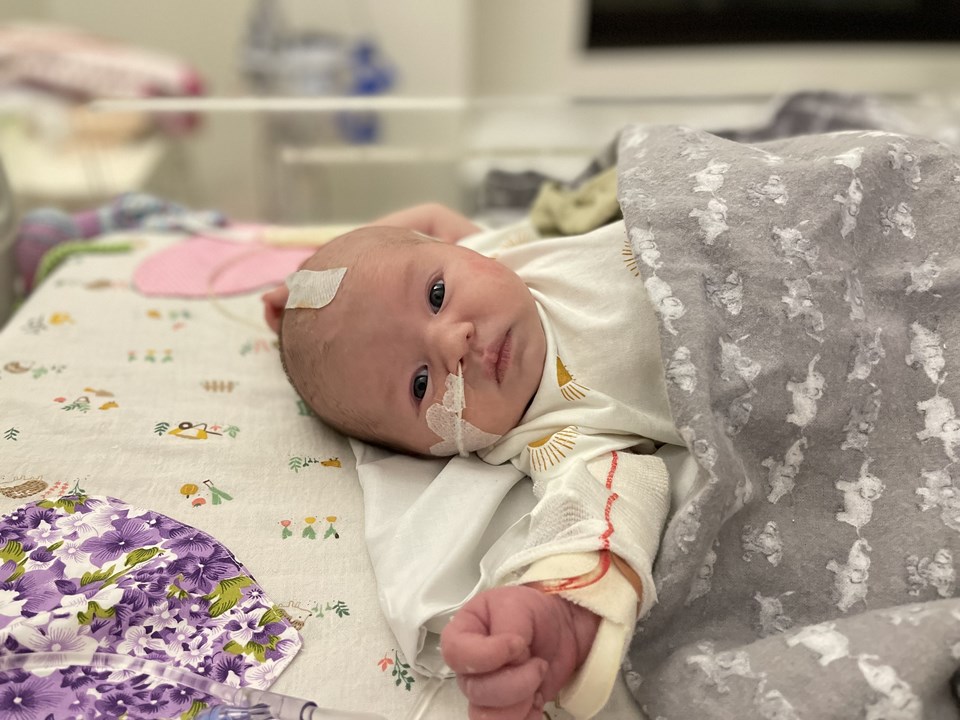When Brydee Platt and Trent Barratt had their baby daughter Harper, their world was turned upside down.
Just hours after she was born, tiny Harper had a stroke.
"When we were discharged from hospital, I knew something wasn't right. I followed a mother's intuition and took her to the Children's Hospital where our worst fears were confirmed," Brydee said.
"She had large blood clots on her brain. Within minutes a neurosurgeon and social worker were standing next to us. We were told Harper needed urgent brain surgery, but she may not survive it.
"We are so grateful and feel very lucky that we had that surgeon on call that night. Seeing her on life support, hooked up to all of those machines with bandages on her head, that's something I'll never forget."
Despite being only one day old, Harper did make it through the surgery. Now 21 months old, Harper lives with Cerebral Palsy as a result of her stroke and receives weekly rehab.
"It wasn't until about a week later that a nurse said the word stroke. That was such a shock to us because we had no idea a stroke could happen to a baby," she said.
Unfortunately, stroke is now something the family knows all too well. Twelve months to the day of Harper's stroke, her grandmother, 69-year-old Janice Platt had a stroke.
"Mum receives ongoing speech therapy, occupational therapy and physio as part of her rehabilitation. Like Harper, the right side of her body is affected, and she has little movement on that side."
"I want people to know that strokes can happen at any age. Stroke was the last thing on my mind before my daughter and mum had one."
Stroke Foundation Chief Executive Officer, Dr Lisa Murphy said Harper and Janice's stories highlight that stroke can happen to anyone, at any time.
"While they both present very differently, stroke can strike people of all ages. In Australia, someone has a stroke every 19 minutes, while around 600 children have a stroke each year," Dr Murphy said.
"We know the faster an adult or child with stroke gets to hospital and receives medical treatment, the better their chance of survival and a good recovery. Learning the F.A.S.T. acronym can make a real difference."







